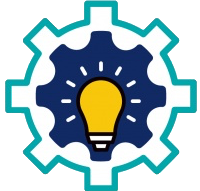API 510 Pressure Vessel Inspection certification preparation
Details :
This 5-days course is meant to provide a thorough
understanding of the engineering information required for In-Service Pressure
Vessel Inspection (API 510), as well as proper preparation for the examination.
This preparatory course will cover the fundamentals of pressure vessel design,
with a concentration on the API body’s test syllabus. It contains all of the
code parts alluded to by the API 510 committee, to the extent that they are
required from an inspection standpoint.
This training will clarify the underlying intentions of all
code sections, teach participants how to interpret code rulings, and increase
their confidence in making judgements. The course includes five key topics:
basic pressure vessel design engineering (ASME Sec VIII Div 1), in-service
inspection techniques (API 510/ 572/ 576/ 577), in-service degradation
mechanisms (API 571), retirement thickness calculations, and other aspects of
Run-Repair-Replace decisions. The participants will receive detailed,
illustrated course notes.
By completing this course, participants will be able to:
- To
familiarize participants with the API 510 Code’s core principles and
technical terms.
- To
teach participants how to use the API510 Inspection Code in a systematic
manner, with a thorough knowledge of the stated and intended requirements.
- Understand
the fundamentals of pressure vessel design as well as the regulations for
proper manufacturing, inspection, and testing.
- How to
conduct pressure testing and certify the results.
- Learn
the fundamentals of pressure vessel examination before they are put into
service.
- To
understand how pressure vessels degrade and suffer damage while in
service.
- Calculate
corrosion rate, inspection interval, and other vessel inspection
parameters.
Engineers, managers, inspection employees, plant operational
engineers and managers, and those wishing to take the API 510 exam.
People who work as maintenance engineers and technicians, as
well as those who troubleshoot plant operations. This training will be valuable
to all QA/QC engineers, regardless of whether or not they want to take the API
510 exam
Module 1: Concepts
related to new Vessels, ASME Sec. VIII.
·
Introduction to API 510
Certification.
·
Guidelines for preparation
for examination.
·
Design of Cylindrical shells,
Calculation of vessel MAWP
·
Static head calculations,
Design of Dished heads - Hemispherical, Ellipsoidal, Tori spherical.
·
Calculate vessel MAWP given
vessel parts MAWP and elevations,
·
Impact testing
requirements,
·
How to conduct and certify
Pressure tests, writing hydro test Procedure & pneumatic test procedure.
·
Key concepts of Nozzle
reinforcement Inspection requirements for Pressure Vessels.
·
NDT of Pressure Vessels.
·
Fabrication and Heat
treatment requirements.
Module 2:
Concepts related to Inspection of in-service Vessels API510
·
Inspection and testing
practices for In-Service Vessels as per API 510
·
Typical degradation
mechanisms in pressure vessels, monitoring degradation mechanisms.
·
Inspection Plans, Pressure
vessel inspection External, Internal, On-stream Inspection.
·
Inspection and testing of
Pressure relieving devices.
·
Corrosion Rate
Determination, Remaining Life Calculations.
·
Frequency and Time of
Inspection, Evaluation of Locally thinned Areas, Evaluation of Pitted surface.
·
Correction of Weld joint
Efficiency, Repairs, alterations & rerating of Pressure Vessels, Reports
and Records.
·
Sample Inspection Record.
Module 3:
Other related codes, standards and recommended practices
·
Detail discussions on
Damage Mechanisms (API 571)
·
Introduction to ASME Sec IX
and its requirements.
·
Understanding of PQR and
WPS, Welding procedure qualification & welder qualification.
·
Understanding rules imposed
by ASME Sec V for various NDE techniques.
·
Inspection of pressure
relief devices (API RP 576).
·
Safety valves, Relief
valves, Safety Relief valves.
·
Balanced Safety Relief
valves, Inspection and Test Procedures of pressure relief devices, Discussions
on Welding Inspection and Metallurgy.
(API RP 577).
API 510 training course methodology.
·
Classroom Instruction: API
510 training courses often include classroom instruction, where participants
learn the theoretical aspects of pressure vessel inspection and related topics.
Qualified instructors with industry expertise typically deliver lectures,
presentations, and discussions to provide a comprehensive understanding of the
subject matter.
·
Study Materials: Training
courses usually provide participants with study materials, including textbooks,
handouts, and reference materials. These resources cover the API 510 standards,
codes, and recommended practices, as well as relevant technical information and
case studies.
·
Interactive Learning: To
enhance the learning experience, training courses may include interactive
elements such as group activities, workshops, case studies, and problem-solving
exercises. These activities allow participants to apply the knowledge gained
during the classroom sessions and engage in discussions with fellow trainees.
·
Visual Aids and Multimedia:
Training courses often utilize visual aids and multimedia tools such as
slideshows, videos, and animations to illustrate concepts, procedures, and
examples. These visual aids can help participants grasp complex topics more
effectively and enhance their understanding of practical applications.
·
Practice Exams: To assess
participants' knowledge and readiness for the API 510 certification exam,
training courses may include practice exams or quizzes. These assessments allow
participants to gauge their understanding of the subject matter and identify
areas that require further study or clarification.
·
Hands-on Training
(Optional): Some API 510 training courses may offer optional hands-on training
sessions, where participants have the opportunity to practice inspection
techniques, use relevant tools and equipment, and gain practical experience in
assessing pressure vessels. This aspect can provide valuable real-world
exposure and enhance participants' skills.
daily 09:00 – 14:00


